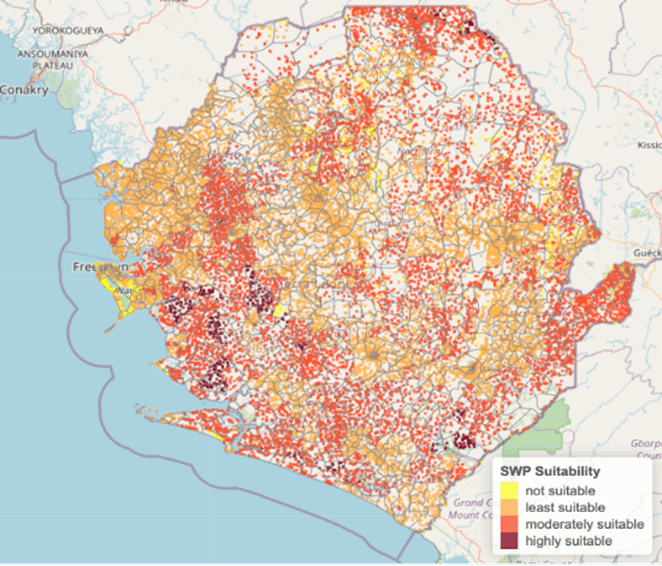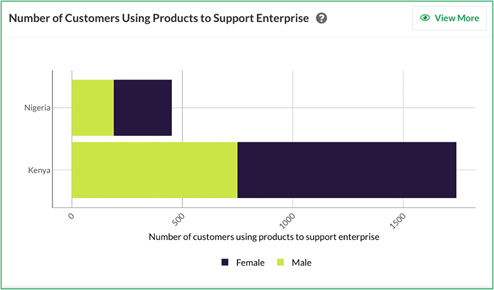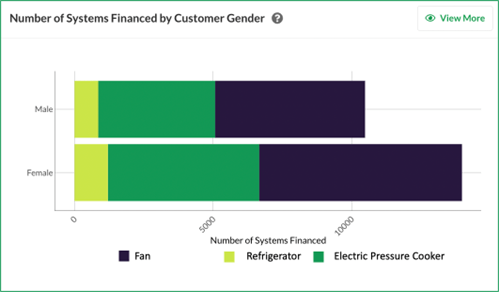Recent data from the World Bank shows that only three countries in sub-Saharan Africa, Kenya, Ghana, and Rwanda, are on track to achieve universal access to electricity by 2030. But universal access is just the beginning. At a minimum households need basic access to lighting and mobile phone charging, but the goal of the just energy transition is that people are able to meet any energy needs in ways that are clean, reliable, and affordable.
In late 2022, CLASP and Nithio launched a USD $6.5 million financing facility, the Productive Use Financing Facility (PUFF), to grow the market for Productive Use Appliances (PUA) across Africa. The facility will improve appliance affordability for consumers and companies and is supported by the Global Energy Alliance for People and Planet (GEAPP). It focuses on six appliance technologies based on their relative maturity and potential to drive development impact – walk-in cold rooms, refrigerators, electric cookers, fans, mills, and solar water pumps.
More financing to the PUA sector is key to scaling access to these products. Key challenges distributors face include:
- High start-up costs for manufacturing or importing appliances and distribution costs remain high
- Lack of supply of quality-assured products
- Limited and inconsistent data on current PUA market dynamics and demand
- Limited understanding of a household’s ability to pay for products
Nithio’s AI-enabled energy financing platform is built to scale climate-resilient solutions, such as PUAs, which improve communities’ access to and efficient use of clean energy. Nithio uses its analytics to scale PUA financing, including through its own blended-finance vehicle, to improve the market and expand impact.
Mapping Demand: Nithio is able to map demand for various PUA products and how users would access them, as seen in Figure 1 below, where we have mapped the potential market for refrigerators. We developed ‘suitability’ criteria for each PUA product based on research, which informed thresholds of a set of key geospatial variables. These variables include measures of ability to pay for PUA, demand for the PUA based on economic activity, energy system availability, and climatic conditions that either constrain or enable the use of PUA. For example, for assessing suitability for Solar Water Pumps, Nithio takes into account household resources, self-employment in agriculture, land size, and land topography.
Figure 1 – Mapping Suitability for Solar Water Pumps in Sierra Leone

Understanding Credit Risk: A key barrier to the market is understanding product fit and customer credit risk and how to sustainably scale PUA financing for smallholder farmers, microentrepreneurs, and households. As the market is in its early phases, it requires a mix of catalytic and commercial capital – and it is important to understand how best and where to use each type of capital.
Nithio’s Risk Analytics Engine helps to assess the credit risk of a PUA company’s portfolio – accounting for customer ability to pay, anticipated cash flows, and portfolio at risk. This provides integral insight for conducting due diligence, improving distributors’ bankability, and monitoring the distributor’s portfolio health.
PUA have the ability to not only provide new or improved energy access to individuals but also enable economic mobility for these customers. Monitoring the performance of the investments to ensure they stay on track, as well as capturing impact in real-time, is important to ensure the sustainability of the sector as well as help attract additional support for the market.
Monitor Performance and Impact: Nithio’s platform is able to provide real-time performance and impact tracking. For example, Nithio can track investment metrics, such as portfolio at risk, to ensure they align with expectations. Nithio also monitors the impact of investments, such as environmental, social and economic, disaggregated by gender, location, and product.
Figure 2 – Performance and impact tracking using Nithio’s Portfolio Portal


Nithio will continue to work to scale energy access and help more countries achieve universal access by 2030, but we are excited to add a greater focus on financing productive use appliances through our work with CLASP. Nithio’s data-driven model for risk assessment can be applied across a wide range of products that will bring greater economic productivity as well as greater resilience to climate change.


Recent Comments